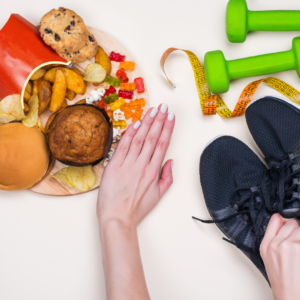Weight loss strategies: Ultimate Guide to Shed Pounds
Discover proven weight loss strategies, expert diet tips, and effective exercise plans for lasting weight loss. Transform your life today!
Achieving lasting weight loss is more than a quick fix—it’s a transformative journey toward improved health, enhanced energy, and a more confident you. Many people become frustrated with conflicting advice, fad diets, and unsustainable routines that promise rapid results but ultimately lead to disappointment. In this comprehensive guide, we address common pain points and offer research-backed, actionable weight loss strategies that combine smart nutrition, consistent exercise, and lifestyle modifications to help you achieve and maintain your ideal weight.
Weight loss is not just about reducing numbers on a scale; it’s about improving your overall quality of life. Traditional diets often focus solely on calorie restriction, which can lead to nutritional deficiencies and a cycle of yo-yo dieting. Sustainable weight loss requires a holistic approach—one that nurtures both your body and mind.
The Problem: Many weight loss programs focus on short-term results without addressing long-term health, often leading to burnout and frustration.
The Agitation: This narrow focus can result in low energy, poor metabolic function, and even chronic issues like high blood pressure and diabetes.
The Solution: Our guide provides a balanced, sustainable approach to weight loss by integrating nutrient-rich meal plans, tailored exercise routines, and smart lifestyle habits that form lasting weight loss strategies.
Diet Tips
A well-rounded, nutrient-dense diet is the cornerstone of any effective weight loss plan. Instead of resorting to extreme calorie cuts, focus on fueling your body with foods that promote satiety, boost metabolism, and provide lasting energy.
Focus on Whole Foods
Embrace a diet rich in whole, unprocessed foods. This means prioritizing:
- Fruits & Vegetables: Loaded with vitamins, minerals, antioxidants, and fiber, these help reduce cravings and protect against inflammation.
- Lean Proteins: High-quality proteins such as chicken, fish, tofu, legumes, and low-fat dairy are essential for muscle repair and satiety.
- Whole Grains: Opt for quinoa, brown rice, barley, and oats, which provide sustained energy and support digestive health.
Portion Control
Portion control is vital for maintaining a calorie deficit without sacrificing nutrition:
- Smaller Plates: Using smaller dishes can naturally reduce serving sizes.
- Mindful Eating: Focus on your food, chew slowly, and listen to your body’s hunger signals.
- Food Journals: Logging your meals can help monitor calorie intake and maintain nutritional balance.
Boost Your Metabolism
Enhance your metabolism by incorporating certain foods and eating patterns:
- Green Tea & Spicy Foods: Both are known to temporarily boost metabolic rate.
- Intermittent Fasting: Limiting your daily eating window may reduce overall calorie intake and improve insulin sensitivity over time.
Exercise Plan
Regular physical activity is essential for achieving and maintaining weight loss. Exercise not only burns calories but also builds muscle mass, which increases your resting metabolic rate. A balanced exercise plan should include a mix of cardiovascular workouts, strength training, and flexibility exercises.
Cardio Workouts
Effective cardio exercises include:
- Running or Brisk Walking: Aim for at least 150 minutes of moderate-intensity activity per week.
- Cycling or Swimming: These low-impact alternatives protect your joints while elevating your heart rate.
- Group Classes: Aerobics, dance, or spin classes add fun and variety to your routine.
Strength Training
Building lean muscle is crucial:
- Weight Lifting: Use free weights or resistance machines to target major muscle groups.
- Bodyweight Exercises: Squats, push-ups, and lunges are simple yet effective.
- Resistance Bands: These offer a versatile and joint-friendly option for at-home workouts.
Flexibility and Recovery
A balanced program also includes recovery and flexibility:
- Yoga & Pilates: Improve flexibility, balance, and core strength.
- Stretching: Regular stretching post-workout reduces muscle soreness.
- Rest Days: Allow time for recovery to prevent injury and ensure long-term progress.
Lifestyle Hacks
Everyday habits play a significant role in supporting your weight loss journey. Small adjustments in your daily routine can lead to substantial improvements over time. Here are several lifestyle hacks to incorporate into your weight loss strategies.
Managing Stress
Managing stress is critical because chronic stress can sabotage weight loss efforts:
- Impact on Hormones: High stress increases cortisol levels, which not only raises appetite but also encourages fat storage—especially around the midsection.
- Mindfulness & Meditation: Practicing mindfulness through meditation or breathing exercises can help lower stress levels. Set aside 10 minutes a day for quiet reflection.
- Physical Activity: Regular exercise is a powerful stress reliever, so maintain a routine that helps clear your mind.
Quality Sleep
Quality sleep is essential for overall health and effective weight loss:
- Hormonal Balance: Quality sleep helps regulate hormones like leptin and ghrelin, which control hunger and satiety.
- Sleep Hygiene: Establish a regular sleep schedule, create a calming bedtime routine, and minimize screen time before bed.
- Metabolic Impact: Consistent sleep improves metabolic function and supports muscle recovery after workouts.
Additional Lifestyle Hacks
Other daily habits that can boost your weight loss strategies include:
- Stay Hydrated: Drinking enough water supports metabolism and prevents mistaking thirst for hunger.
- Daily Routine: Establish set times for meals, exercise, and relaxation to maintain consistency.
- Avoid Sedentary Behavior: Incorporate regular movement into your day, even if it’s just short walks or stretching breaks.
Foods to Avoid
Certain foods can significantly hinder your weight loss progress:
- Sugary Beverages: Sodas, sweetened juices, and energy drinks add unnecessary calories with little nutritional value.
- Processed Foods: Highly processed snacks, fast food, and ready meals often contain unhealthy fats, excessive sodium, and added sugars.
- Refined Carbohydrates: White bread, pastries, and many breakfast cereals can cause rapid blood sugar spikes, leading to increased cravings.
- Excess Alcohol: Alcohol provides empty calories and may impair your decision-making, often leading to overeating.Reasons for Overweight
Understanding why weight gain occurs is essential for creating effective weight loss strategies:
- Poor Diet: Consuming calorie-dense, nutrient-poor foods is a primary factor.
- Lack of Physical Activity: Sedentary lifestyles contribute to weight gain and diminished metabolic health.
- Hormonal Imbalances: Conditions such as hypothyroidism, insulin resistance, or elevated cortisol can hinder weight loss.
- Genetic Factors: While genetics play a role, lifestyle factors largely determine their impact.
- Emotional Eating: Stress, boredom, or emotional distress often lead to overeating and unhealthy food choices.
Additional Insights
Mindful Eating
Mindful eating is a powerful practice that can transform your relationship with food:
- Enhanced Awareness: Recognize the difference between true hunger and emotional cravings.
- Increased Satisfaction: Savoring each bite can lead to a more satisfying meal experience and help prevent overeating.
- Better Digestion: Eating slowly aids in proper digestion and nutrient absorption.
Tips for Practicing Mindful Eating:
- Sit down at a table and eliminate distractions.
- Chew thoroughly and enjoy the flavors and textures of your food.
- Reflect on how your body feels before, during, and after eating.
Tracking Progress
Monitoring your progress is essential to keep your weight loss strategies on track:
- Food Journals: Record your meals to identify patterns and areas for improvement.
- Fitness Apps: Utilize digital tools to track workouts, calories burned, and overall progress.
- Regular Measurements: Weigh yourself, measure body dimensions, and document your progress with photos.
- Celebrate Milestones: Recognize and reward your achievements to stay motivated.
Conclusion
Achieving sustainable weight loss requires a comprehensive, balanced approach that integrates smart nutrition, regular exercise, and effective lifestyle modifications. By focusing on whole, nutrient-dense foods, engaging in consistent exercise, and adopting mindful habits, you can overcome weight loss challenges and transform your life.
Don’t let frustration or conflicting advice hold you back any longer. Take control of your health today and start your journey toward lasting weight loss and improved well-being. For more expert strategies and detailed guidance, explore our comprehensive Weight Loss Guide on HealthHype.com and subscribe to our newsletter for exclusive insights and inspiring success stories.
Your transformation begins now. Embrace these actionable steps and experience the empowering benefits of sustainable weight loss—better health, increased energy, and renewed confidence.
External References
- CDC – Healthy Weight
- NIH – National Institutes of Health
- WHO – Obesity and Weight Management
Start your journey today with these proven weight loss strategies and transform your life for the better!
Latest Updated on February 9, 2025 by admin
Published on February 5, 2025 by admin


